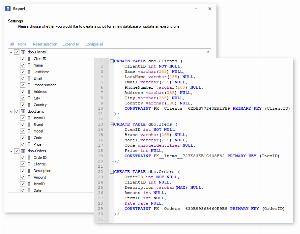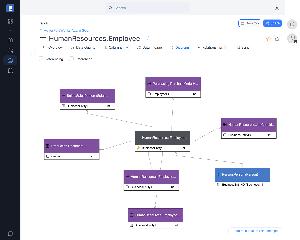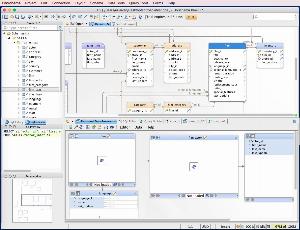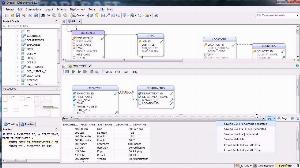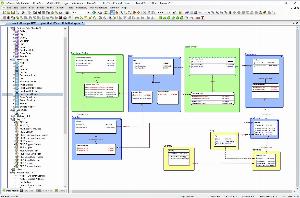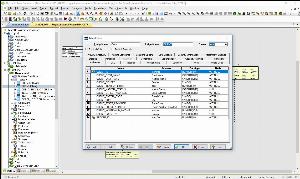Database design tools for Databricks
List of tools that allow for the design of a database.
Database design is a set of activities aimed at improving the development, implementation, and maintenance of an enterprise data management system. Its main goal is to reflect the outline of the database system into real models: physical and logical. Database designers determine what data is to be stored inside the database, and how objects are to be related to each other.
Dataedo
Dataedo is a metadata management tool with data description language (DDL) export. It reads your schema and lets you easily describe each data element (tables and columns) and other database objects (like triggers, stored procedures, etc.) visually as ER diagrams. Additionally, DDL export allows you to export your database to a set of statements like CREATE and ALTER.
| Desktop/Cloud: | Desktop |
|---|---|
| Generate DDL scripts: |
|
| Free edition: |
|
| ER Diagram: |
|
DbSchema
DbSchema is a intuitive designer for complex databases, visual interaction and documentation.
| Desktop/Cloud: | Desktop |
|---|---|
| Generate DDL scripts: |
|
| Free edition: |
|
| ER Diagram: |
|
ER/Studio
ER/Studio Data Architect helps to easily reverse- and forward-engineer, compare and merge, and visually document data assets across multiple platforms and data sources. It enables data professionals to better manage data models and metadata in complex and dynamic enterprise environments.
| Desktop/Cloud: | Desktop |
|---|---|
| Generate DDL scripts: |
|
| Free edition: |
|
| ER Diagram: |
|
Qlik Data Catalyst
Qlik Data Catalyst is a metadata driven data catalog that has technical and business descriptions, data profiles, data lineage, and data tags that make data search and delivery simple. It builds a secure, enterprise-scale catalog of all the data your organization has available for analytics, no matter where it is.
| Desktop/Cloud: | - |
|---|---|
| Generate DDL scripts: | - |
| Free edition: |
|
| ER Diagram: | - |
The database design process can be very complicated. The more complex the system, the more sophisticated the tool is needed. Their functionality can vary greatly, however, core features include:
• creating and editing database objects,
• database architecture modeling,
• visualization of a database schema,
• tracking relationships between entities,
• grouping logically related objects into clusters,
• diagrams overview.
Database designer tools enable building graphical models and generating DDL scripts on their basis. The script describes data and relations between entities in the designed database. Furthermore, the tools enable reverse engineering (visualization of the model from the SQL script).
Key factors of creating a reliable and well-organized database are:
• a properly designed data structure,
• establishing what data should be stored in particular objects,
• how objects should be related to each other.
All of them can be improved by using the relevant Database design tool. Additionally, some of them allow the visual representation of data using ERD, makes it easier to visualize even more complex schemas.
Without proper software, development is based on raw code. This increases the risk of errors at the initial stage. The tools allow users to edit the visual layout using simple drag-and-drop functions. With a user-friendly interface, browsing the structure is possible even for non-IT people.
We have created a list of tools that support the process of creating database structure and its content. Our list includes free database design tools as well as advanced, more professional data management tools.
 SQL Server
SQL Server
 Oracle
Oracle
 MySQL
MySQL
 PostgreSQL
PostgreSQL
 Amazon Redshift
Amazon Redshift
 Azure SQL Database
Azure SQL Database
 DBT
DBT
 Google Big Query
Google Big Query
 IBM DB2
IBM DB2
 MariaDB
MariaDB
 SAP HANA
SAP HANA
 Snowflake
Snowflake
 SQLite
SQLite
 Teradata
Teradata
 Vertica
Vertica
